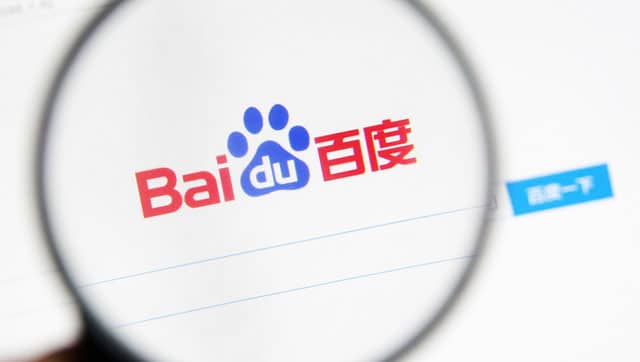Baidu Core generated RMB23.2 billion in revenues in the second quarter, while Baidu AI Cloud revenues maintained rapid growth momentum of 31% year over year and 10% quarter over quarter
Baidu Operation Highlights
Cloud Computing
Baidu AI Cloud was again ranked the No. 1 AI cloud provider, according to IDC’s second half of 2021 report on China’s public cloud market report, issued in June 2022.
Baidu ACE smart transportation has been adopted by 51 cities, up from 20 cities a year ago, based on a contract value of over RMB10 million, as of the end of the second quarter of 2022.
Intelligent Driving
Apollo Go, Baidu’s autonomous ride-hailing service, provided 287K rides in the second quarter of 2022. On July 20, 2022, Apollo Go reached one million accumulated rides, serving passengers on open roads.
Apollo Go started offering fully driverless ride-hailing services on open roads and received the permits to collect fees from the passengers in Chongqing and Wuhan on August 8, 2022. This has made Apollo Go the first and only of its kind in China to provide ride-hailing services completely without human drivers present in the car.
Apollo Go was granted the permits to charge fees for the driverless ride-hailing services on public roads of the Yizhuang region of Beijing on July 20, 2022.
Apollo Go expanded into Hefei (Anhui) on July 11, 2022, and Chengdu (Sichuan) on July 22, 2022, and is now available in more than ten cities in China, including all the tier-1 cities (Beijing, Shanghai, Guangzhou, Shenzhen) and other major cities.
Baidu unveiled its 6th generation robotaxi vehicle Apollo RT6 in July 2022. RT6 is the first steering wheel-free, all electric model designed for fully driverless autonomous driving. Apollo RT6 is distinct from the previous generations that had otherwise been retrofitted on conventional vehicles.
Other Growth Initiatives
Xiaodu again ranked No.1 in smart display shipments globally for 2021, according to Strategy Analytics and Canalys. Xiaodu continues to be ranked No.1 in smart speaker shipments in China for 2021, according to Strategy Analytics, IDC, and Canalys.
Mobile Ecosystem
In June, Baidu App’s MAUs reached 628 million, up 8% year over year, and daily logged in users reached 84%. Revenue from Managed Page grew by 10% year over year and reached 49% of Baidu Core’s online marketing revenue in the second quarter of 2022.
iQIYI’s average daily number of total subscribing members for the quarter was 98 million, compared to 99 million for the second quarter of 2021 and 101 million for the first quarter of 2022.
Mini Program platforms 2021: WeChat vs. Alibaba vs. Baidu
Financial Results in Q2 2022
Total revenues were RMB 29.6 billion ($4.43 billion), decreasing 5% year over year.
Revenue from Baidu Core was RMB 23.2 billion ($3.46 billion), decreasing 4% year over year; online marketing revenue was RMB 17.1 billion ($2.55 billion), decreasing 10% year over year primarily due to the resurgence of Covid-19 in certain cities in China, and non-online marketing revenue was RMB 6.1 billion ($906 million), up 22% year over year, driven by cloud and other AI-powered businesses.
Revenue from iQIYI was RMB 6.7 billion ($994 million), decreasing 13% year over year.
The cost of revenues was RMB 15.2 billion ($2.27 billion), decreasing 5% year over year, primarily due to the decrease in content costs, partially offset by the increase in personnel-related expense and other costs related to the new AI business.
Selling, general and administrative expenses were RMB 4.8 billion ($714 million), decreasing 16% year over year, primarily due to a decrease in channel spending and promotional marketing.
Research and development expense was RMB 6.3 billion ($939 million), which was flat from last year.
Operating income was RMB 3.4 billion ($508 million). Baidu Core’s operating income was RMB 3.2 billion ($485 million), and Baidu Core operating margin was 14%. Non-GAAP operating income was RMB 5.5 billion ($820 million). Non-GAAP Baidu Core operating income was RMB 5.1 billion ($765 million), and non-GAAP Baidu Core operating margin was 22%.
Total other income, net was RMB 151 million ($23 million), compared to a total other loss of RMB 2.4 billion last year, which included a fair value loss of RMB 3.1 billion from long-term investments. In the second quarter of 2022, Baidu recognized a fair value gain of RMB 536 million.
Income tax expense was RMB 25 million ($4 million), decreasing 99% year over year, primarily due to the reversal of certain tax expenses accrued for 2021 based on the 2021 tax return filed in the second quarter of 2022 and an increase in deduction on certain expenses that were considered non-deductible in the second quarter of 2021.
Net income attributable to Baidu was RMB 3.6 billion ($543 million), and diluted earnings per ADS was RMB 9.97 ($1.49). Net income attributable to Baidu Core was RMB 3.7 billion ($555 million). Non-GAAP net income attributable to Baidu was RMB 5.5 billion ($827 million). Non-GAAP diluted earnings per ADS was RMB 15.79 ($2.36).
Non-GAAP net income attributable to Baidu Core was RMB 5.4 billion ($814 million), and non-GAAP net margin for Baidu Core was 24%.
Adjusted EBITDA was RMB 7.1 billion ($1.05 billion) and the adjusted EBITDA margin was 24%. Adjusted EBITDA for Baidu Core was RMB 6.6 billion ($985 million) and adjusted EBITDA margin for Baidu Core was 28%.
As of June 30, 2022, cash, cash equivalents, restricted cash and short-term investments were RMB 189.4 billion ($28.28 billion), and cash, cash equivalents, restricted cash and short-term investments excluding iQIYI were RMB 184.5 billion ($27.55 billion). Free cash flow was RMB 5.5 billion ($823 million), and free cash flow excluding iQIYI was RMB 5.5 billion ($826 million).



